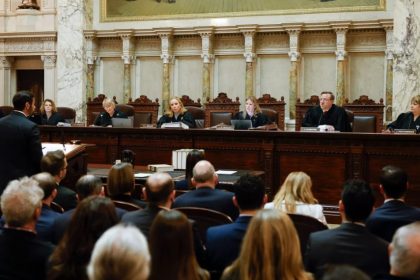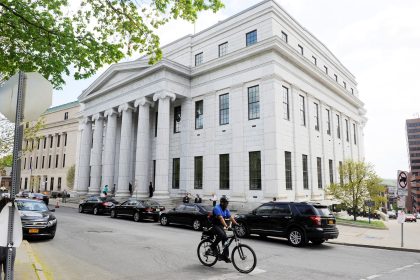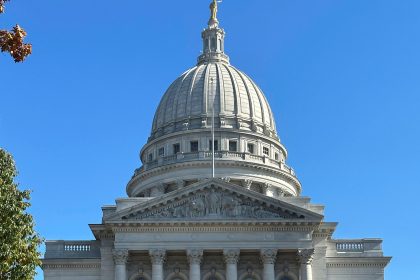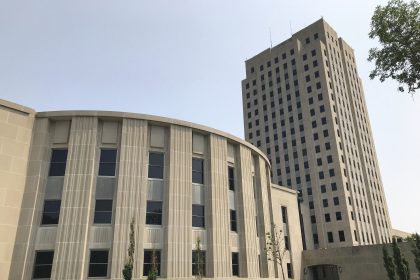Supreme Court to Hear Case on State Authority Over Elections
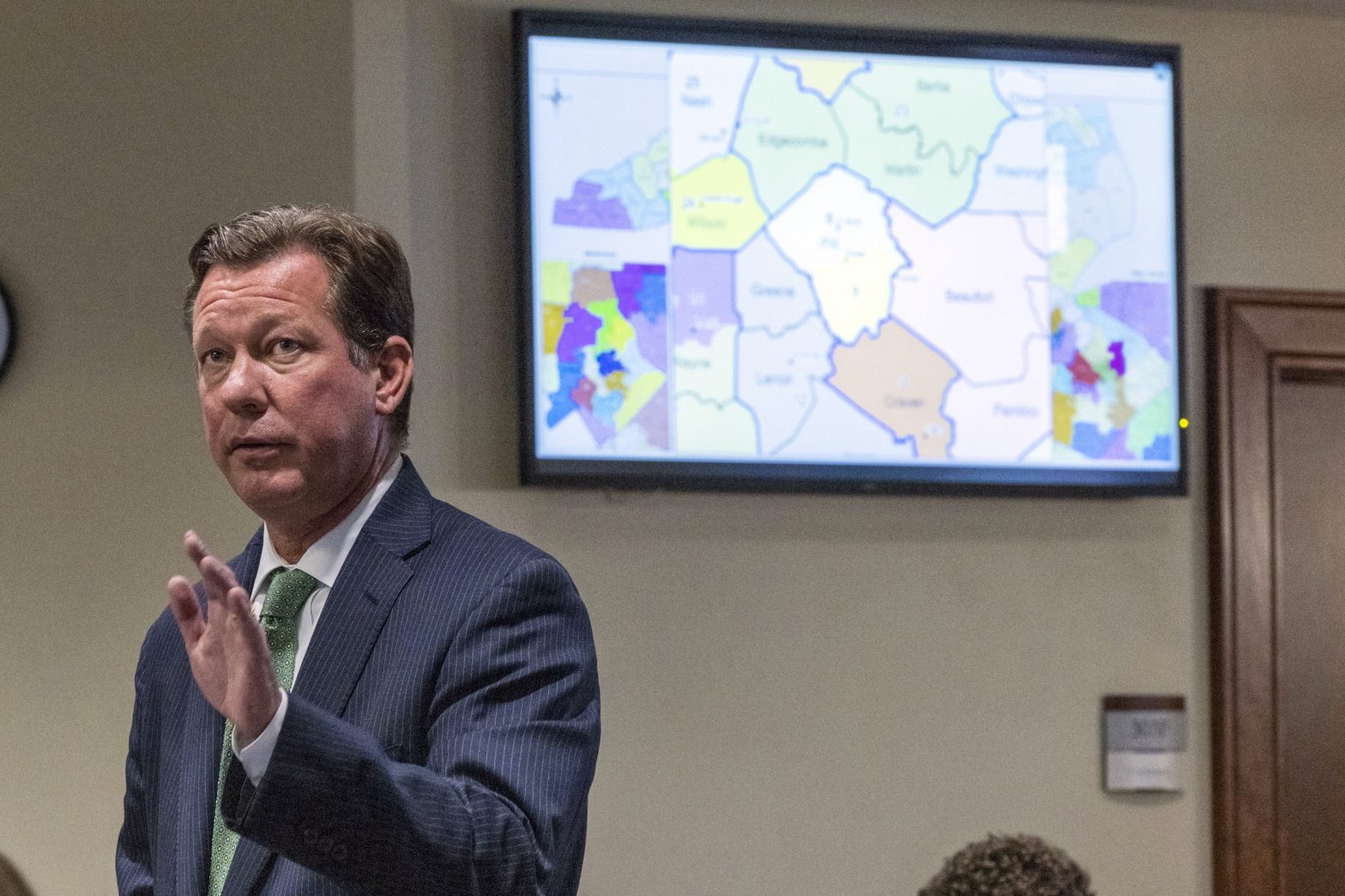
WASHINGTON — The Supreme Court on Thursday agreed to hear an appeal from North Carolina Republicans that could ultimately remove state court authority over congressional redistricting.
If they decide for the petitioners in Moore v. Harper, the justices would dramatically limit when state courts could intervene, if at all, and order changes to district maps or federal elections.
The petition to the justices challenges a state court ruling earlier this year that threw out the congressional districts drawn by North Carolina’s General Assembly that made GOP candidates likely victors in 10 of the state’s 14 congressional districts.
Republican lawmakers told the Supreme Court that they believe the Constitution intends for legislative leaders, not the courts, to have the final say over elections law.
They want the justices to declare the North Carolina Supreme Court did not have the power to strike down the state’s congressional map as a partisan gerrymander in violation of the state constitution.
They also want the high court to reinstate the 2021 congressional map that was found to be an unconstitutional partisan gerrymander.
The Supreme Court has never weighed in on the concept known as the “independent state legislature doctrine,” a reading of the Constitution that would give state legislatures near-total control over the rules guiding elections, without state court interference or oversight.
A number of legal authorities, including the Brennan Center for Law, have labeled the doctrine “dubious” at best.
And the North Carolina Supreme Court itself has said the theory is “repugnant to the sovereignty of states, the authority of state constitutions, and the independence of state courts, and would produce absurd and dangerous consequences.”
Now, four of the court’s conservative justices, including Justice Clarence Thomas, who invoked the doctrine during Bush v. Gore, the case that settled the 2000 election, have signaled they’re interested in exploring the theory.
Some critics fear that if it is given any credibility by the high court, Republican-held legislatures in states that vote for a Democrat for president in 2024 might be able to use it to ignore the popular vote and give their Electoral College votes to the Republican candidate instead.
Among those raising the alarm is former Attorney General Eric Holder, who now chairs the Democratic National Redistricting Foundation.
“The independent state legislature theory is a fringe legal theory based on a willful misinterpretation of the Constitution, and it is at odds with basic tenets of American government, including the separation of powers,” Holder said in a lengthy written statement.
“The goal of those embracing this radical theory is clear: to give control over our elections to extreme Republican state legislatures that are dominated by anti-democracy politicians who perpetuate and facilitate the Big Lie,” he said.
“It should not be lost on the public that this is a desperate attempt to delegitimize the lawful decisions of neutral arbiters — state justices of both political parties who have provided a check against extreme laws enacted by gerrymandered Republican legislatures — all because Republicans did not like the end result,” Holder continued. “As shocking as this is, it is also unfortunately not surprising. The same political party that has called for the impeachment of state supreme court justices for holding them to account is now attacking the independence of state courts through the nation’s highest tribunal.
“All of this underscores the fact that every election matters, and it is incumbent upon all of us to protect the true independence of the judiciary, which is critical to our democracy,” he concluded.
The case is expected to be heard in the fall.
Dan can be reached at [email protected] and @DanMcCue


















